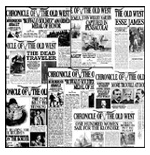
A Soft Iconoclasm
EDITORIAL
A study released last fall by the Barna Group, an evangelical Christian polling firm, confirmed the obvious: The Internet is taking over our lives. The study, titled “The State of Books and Reading in a Digital World” (Oct. 22, 2015), cites some impressive statistics from the World Wide Web: Two million blog posts are written, eight hundred and sixty-four thousand hours of videos are uploaded to YouTube, and five billion pieces of content are shared on Facebook — all in a single day.
One effect of the tremendous growth of the “new media” is the eclipse of traditional forms of communication. Print publications, whether books, magazines, or newspapers, are edging toward extinction. It’s not uncommon to hear our culture described as post-literate.
Though the indicators point in that direction, thanks in large part to the cumulative effect of the Internet phenomenon, we haven’t reached that final destination. “People still like to read,” Barna editor-in-chief Roxanne Stone said in an interview with Baptist News Global (Dec. 8, 2015). But we’re doing the bulk of our reading online, where there’s a seemingly infinite amount of new “content” only a quick click or finger swipe away. This has had an adverse effect on our ability to concentrate on one topic for an extended period of time. “In general we have shorter attention spans,” says Stone, “and we are jumping from article to article.” As a result, news reports and feature articles and even blog posts are getting shorter and shorter. Who has the patience to slog through a twenty-five-hundred-word article anymore?
What does this mean for the spiritual life? “That real quick-hit culture does shape our spirituality,” says Stone. People who’ve grown accustomed to reading shorter articles, and to jumping from one brief take to another, become less patient with lengthier, more in-depth texts — texts that don’t offer simplistic analyses in a tidy format. People are even becoming less patient with texts like the Bible, Stone says.
You May Also Enjoy
Christ, Not Ideologies... Double-Talk... Media Violence... Relic of the True Cross...
What happens to a religious order based on the charism of its founder when that founder is discovered to have led a life of sexual abuse?
Our morally bankrupt political leaders lie for a living and call it the “fact-checked” truth.

